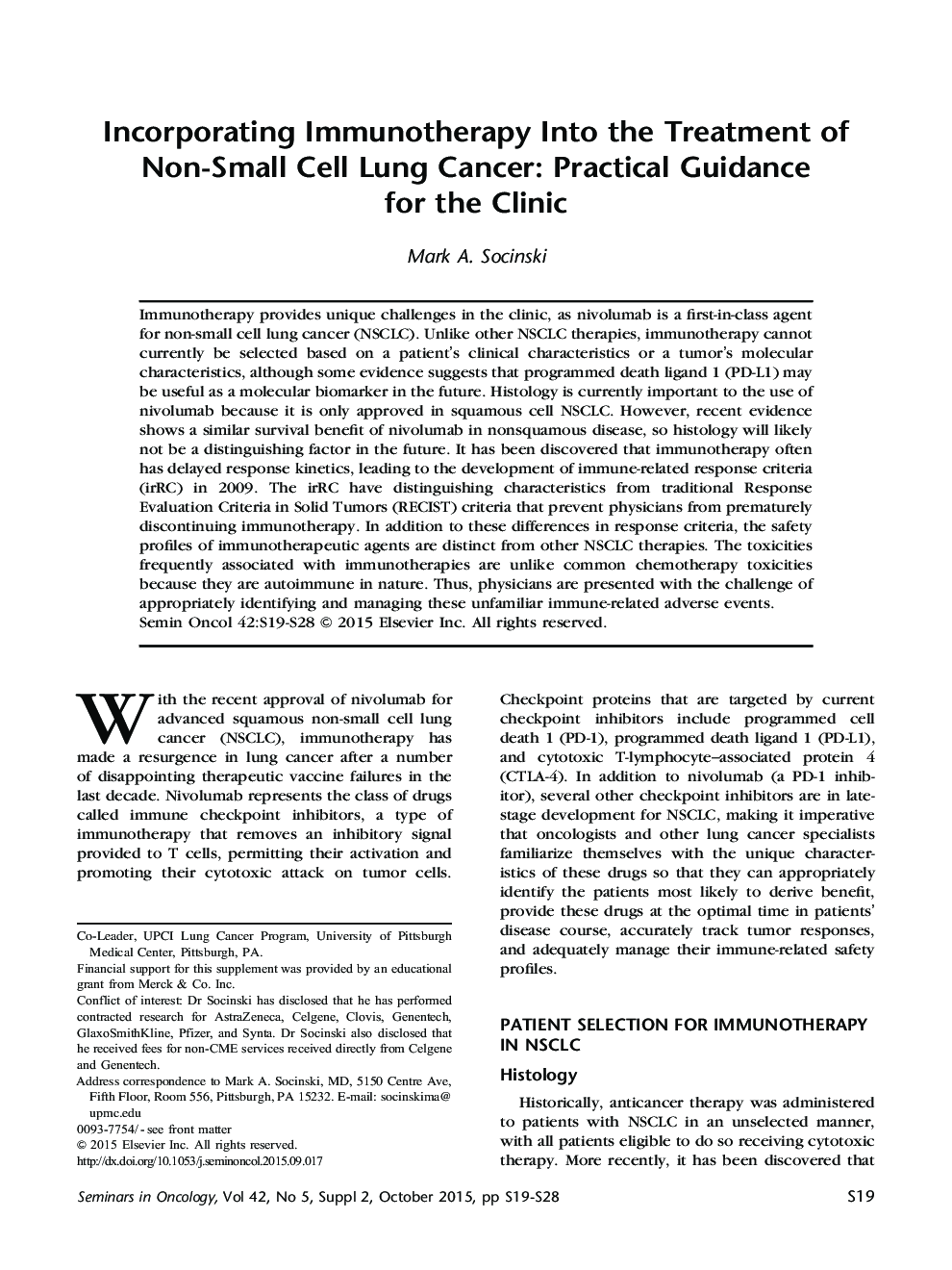| Article ID | Journal | Published Year | Pages | File Type |
|---|---|---|---|---|
| 2161880 | Seminars in Oncology | 2015 | 10 Pages |
Abstract
Immunotherapy provides unique challenges in the clinic, as nivolumab is a first-in-class agent for non-small cell lung cancer (NSCLC). Unlike other NSCLC therapies, immunotherapy cannot currently be selected based on a patient's clinical characteristics or a tumor's molecular characteristics, although some evidence suggests that programmed death ligand 1 (PD-L1) may be useful as a molecular biomarker in the future. Histology is currently important to the use of nivolumab because it is only approved in squamous cell NSCLC. However, recent evidence shows a similar survival benefit of nivolumab in nonsquamous disease, so histology will likely not be a distinguishing factor in the future. It has been discovered that immunotherapy often has delayed response kinetics, leading to the development of immune-related response criteria (irRC) in 2009. The irRC have distinguishing characteristics from traditional Response Evaluation Criteria in Solid Tumors (RECIST) criteria that prevent physicians from prematurely discontinuing immunotherapy. In addition to these differences in response criteria, the safety profiles of immunotherapeutic agents are distinct from other NSCLC therapies. The toxicities frequently associated with immunotherapies are unlike common chemotherapy toxicities because they are autoimmune in nature. Thus, physicians are presented with the challenge of appropriately identifying and managing these unfamiliar immune-related adverse events.
Related Topics
Life Sciences
Biochemistry, Genetics and Molecular Biology
Cancer Research
Authors
Mark A. Socinski,
